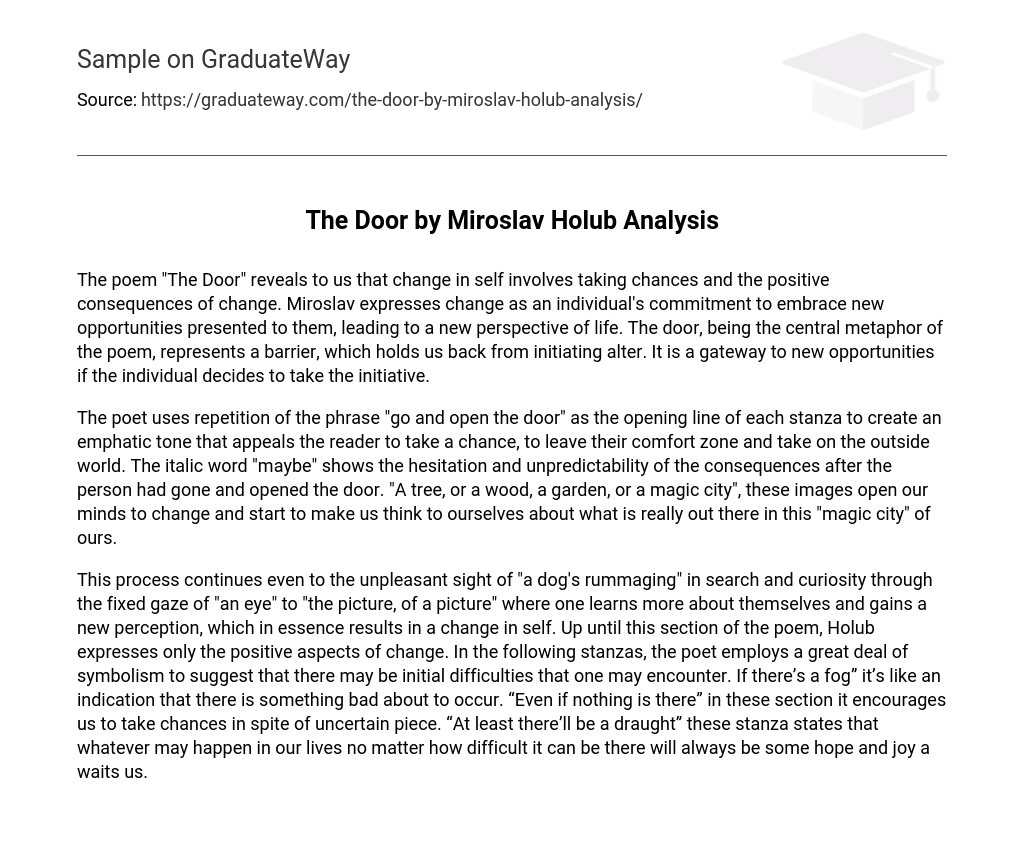The poem “The Door” reveals to us that change in self involves taking chances and the positive consequences of change. Miroslav expresses change as an individual’s commitment to embrace new opportunities presented to them, leading to a new perspective of life. The door, being the central metaphor of the poem, represents a barrier, which holds us back from initiating alter. It is a gateway to new opportunities if the individual decides to take the initiative.
The poet uses repetition of the phrase “go and open the door” as the opening line of each stanza to create an emphatic tone that appeals the reader to take a chance, to leave their comfort zone and take on the outside world. The italic word “maybe” shows the hesitation and unpredictability of the consequences after the person had gone and opened the door. “A tree, or a wood, a garden, or a magic city”, these images open our minds to change and start to make us think to ourselves about what is really out there in this “magic city” of ours.
This process continues even to the unpleasant sight of “a dog’s rummaging” in search and curiosity through the fixed gaze of “an eye” to “the picture, of a picture” where one learns more about themselves and gains a new perception, which in essence results in a change in self. Up until this section of the poem, Holub expresses only the positive aspects of change. In the following stanzas, the poet employs a great deal of symbolism to suggest that there may be initial difficulties that one may encounter. If there’s a fog” it’s like an indication that there is something bad about to occur. “Even if nothing is there” in these section it encourages us to take chances in spite of uncertain piece. “At least there’ll be a draught” these stanza states that whatever may happen in our lives no matter how difficult it can be there will always be some hope and joy a waits us.





